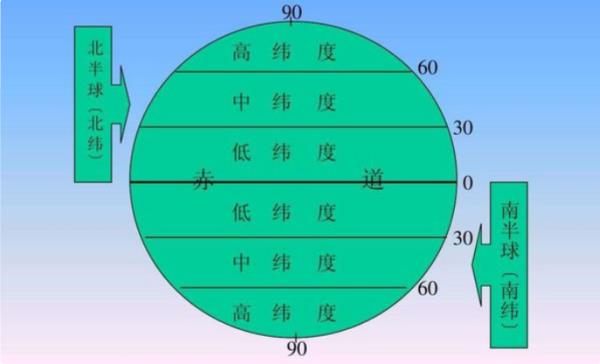如何计算经纬度之间的距离?
Posted
tags:
篇首语:本文由小常识网(cha138.com)小编为大家整理,主要介绍了如何计算经纬度之间的距离?相关的知识,希望对你有一定的参考价值。
参考技术A经纬度之间的距离计算如下:
计算地球上经纬之间的距离d,知道地球上两点的经纬度:(x1,Y1),(X2,Y2),其中x1,X2为经纬度,Y1,Y2为经纬度;
如果地球半径为r=6371.0公里,则两点之间的距离为d=r*Arcos[cos(Y1)*cos(Y2)*cos(x1-x2)+sin(Y1)*sin(Y2)]。
假设我国极影出现的最短时间为中午13:20,杆长与影长之比为为1,则可以看出该地区为北纬45°(TGα=1),东经100°(从120°到1小时减15°,在表A中需要找到4分钟减去1°的杆长与影长为长度的比值。
计算双日经度的算法是在北半球冬至α+ 23.5°和夏至α- 23.5°的任何一天中增加和减去恒定纬度的校正值。

扩展资料:
经纬度划分:
经度被分为360度,每15度有一个时区,其中零度称为本初子午线,是进入新一天的第一个地方,然后向西的每个时区有一个时差。
例如,早上5点,西边的时区是凌晨4点,另一个要经过的时区是凌晨3点,以此类推。在东边,它与原来的子午线相反。
赤道的纬度是0度,行星平均分为南半球和北半球。纬度是指一个点与地球中心和地球赤道之间的线角,其值在0到90度之间。赤道以北点的纬度称为北纬,记为N,赤道以南点的纬度记为S。
纬度在0到30度之间的地区称为低纬度地区,纬度在30到60度之间的地区称为中纬度地区,纬度在60到90度之间的地区称为高纬度地区。
参考资料来源:百度百科-经纬度
如何使用 Python 从导入的 csv 计算纬度/经度点之间的距离?
【中文标题】如何使用 Python 从导入的 csv 计算纬度/经度点之间的距离?【英文标题】:How to use Python to calculate the distance between lat/long points from imported csv? 【发布时间】:2020-11-17 19:32:44 【问题描述】:我正在尝试导入包含四列位置数据(纬度/经度)的 .csv,计算点之间的距离,将距离写入新列,将函数循环到下一组坐标,然后写入输出数据帧到一个新的 .csv。我编写了以下代码。 我在完成这些步骤后遇到了错误。
示例数据:
lat1 lon1 lat2 lon2
33.58144 -57.73018 32.44873 -99.46281
25.46212 -46.62017 34.64971 -96.70271
39.97521 -80.27027 68.69710 -83.27182
42.74529 -73.73028 36.17318 -28.18201
代码:
import pandas as pd
import numpy as np
input_file = "input.csv"
output_file = "output.csv"
df = pd.read_csv(input_file) #Dataframe specification
df = df.convert_objects(convert_numeric = True)
def dist_from_coordinates(lat1, lon1, lat2, lon2):
R = 6371 # Earth radius in km
#conversion to radians
d_lat = np.radians(lat2-lat1)
d_lon = np.radians(lon2-lon1)
r_lat1 = np.radians(lat1)
r_lat2 = np.radians(lat2)
#haversine formula
a = np.sin(d_lat/2.) **2 + np.cos(r_lat1) * np.cos(r_lat2) * np.sin(d_lon/2.)**2
haversine = 2 * R * np.arcsin(np.sqrt(a))
return haversine
new_column = [] #empty column for distance
for index,row in df.iterrows():
lat1 = row['lat1'] #first row of location.lat column here
lon1 = row['lon1'] #first row of location.long column here
lat2 = row['lat2'] #second row of location.lat column here
lon2 = row['lon2'] #second row of location.long column here
value = dist_from_coordinates(lat1, lon1, lat2, lon2) #get the distance
new_column.append(value) #append the empty list with distance values
df.insert(4,"Distance",new_column) #4 is the index where you want to place your column. Column index starts with 0. "Distance" is the header and new_column are the values in the column.
with open(output_file,'ab') as f:
df.to_csv(f,index = False) #creates the output.csv
输出:
因此,经过操作后,output.csv 文件是一个单独的文件,其中包含所有前 4 列以及第 5 列,即距离。您可以使用 for 循环来执行此操作。我在这里展示的方法读取每一行并计算距离并将其附加到一个空列表中,即新列“距离”并最终创建 output.csv。
错误:
FutureWarning: convert_objects is deprecated. To re-infer data dtypes for object columns, use DataFrame.infer_objects()
For all other conversions use the data-type specific converters pd.to_datetime, pd.to_timedelta and pd.to_numeric.
after removing the cwd from sys.path.
TypeError Traceback (most recent call last)
<ipython-input-8-ce103283fa0d> in <module>
33
34 with open(output_file,'ab') as f:
---> 35 df.to_csv(f,index = False) #creates the output.csv
~/anaconda3/lib/python3.7/site-packages/pandas/core/generic.py in to_csv(self, path_or_buf, sep, na_rep, float_format, columns, header, index, index_label, mode, encoding, compression, quoting, quotechar, line_terminator, chunksize, tupleize_cols, date_format, doublequote, escapechar, decimal)
3018 doublequote=doublequote,
3019 escapechar=escapechar, decimal=decimal)
-> 3020 formatter.save()
3021
3022 if path_or_buf is None:
~/anaconda3/lib/python3.7/site-packages/pandas/io/formats/csvs.py in save(self)
170 self.writer = UnicodeWriter(f, **writer_kwargs)
171
--> 172 self._save()
173
174 finally:
~/anaconda3/lib/python3.7/site-packages/pandas/io/formats/csvs.py in _save(self)
272 def _save(self):
273
--> 274 self._save_header()
275
276 nrows = len(self.data_index)
~/anaconda3/lib/python3.7/site-packages/pandas/io/formats/csvs.py in _save_header(self)
240 if not has_mi_columns or has_aliases:
241 encoded_labels += list(write_cols)
--> 242 writer.writerow(encoded_labels)
243 else:
244 # write out the mi
TypeError: a bytes-like object is required, not 'str'
类似问题:
Link to Similar Problem
【问题讨论】:
也许我理解错了,但你为什么不直接使用df = pd.read_csv(input_file, delim_whitespace=True) 而不使用包含convert_objects 的以下行?
【参考方案1】:
您应该应用以下更正:
而不是df = df.convert_objects(convert_numeric = True) 放入df[:] = df[:].apply(pd.to_numeric, errors='coerce')
另外,with open(output_file,'ab') as f: 正在以二进制格式打开文件,而应使用 with open(output_file,'w') as f:
那么它应该可以工作。
【讨论】:
以上是关于如何计算经纬度之间的距离?的主要内容,如果未能解决你的问题,请参考以下文章